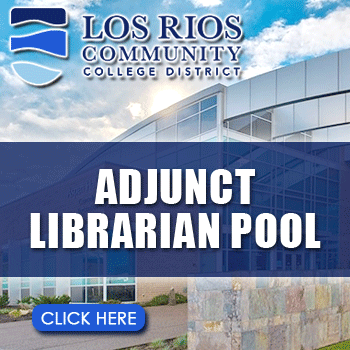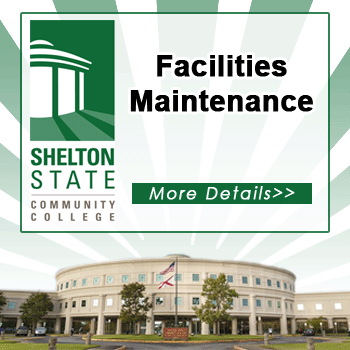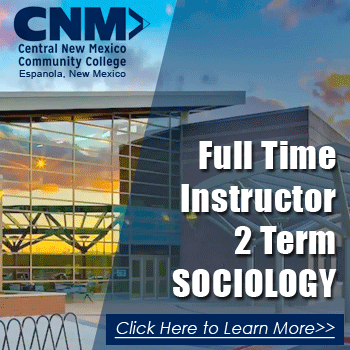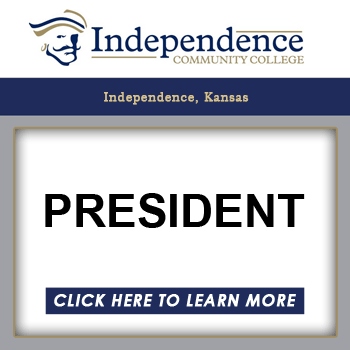
Instructor / Assistant Professor of Powerline Technology
Job Description
EXPECTATIONS AND NATURE OF THE POSITION
The primary responsibility of this individual is to provide instruction to Western students enrolled in the Powerline program. Candidates must have a strong background in electrical theory, power pole installation, pole climbing, and powerline equipment operation. This individual’s responsibilities will include teaching basic courses related to electrical theory, electrical component installation, and general powerline work.
Classes are taught at the main campus in Rock Springs. Typical teaching load is 5-6 courses per semester with an average class size of 15-18 students. Courses are generally taught in 5-week blocks with two courses taught in each 5-week block. Teaching load ranges from 28-32 credits per academic year.
It is expected that this individual will accomplish assigned duties in an efficient, effective, and competent manner, while striving for improvement and excellence in all work performed. Additionally, this individual must understand the comprehensive role of the community college and cooperate and work harmoniously with college personnel and the public. This individual will follow all college policies, rules, regulations and guidelines as they relate to this position.
PRIMARY DUTIES AND RESPONSIBILITIES
1. Provides quality instruction to students in assigned courses in Electric power principles, Lineworker safety, Industry standards, Fall protection, Confined spaces, Emergency response, Measuring equipment, Rigging, Overhead/ underground cable installations, and CDL training.
2. Provides quality learning experiences both in the classroom and in the hands-on labs for all students enrolled while maintaining the integrity of the course’s standards and objectives.
2. Provides quality learning experiences both in the classroom and in the hands-on labs for all students enrolled while maintaining the integrity of the course’s standards and objectives.
3. States clear objectives and criteria for each course in the course syllabus; follows the Curriculum Committee’s guidelines regarding course syllabi; integrates the appropriate College’s learning goals into each course; evaluates students’ performance and annually assesses student performance in light of these objectives and criteria.
4. Teaches courses in a variety of environments and modes. Examples include teaching in the evening and weekends in Rock Springs; developing and teaching customized short courses tailored to the needs of local industry; teaching in the standard classroom, lab and through alternative methods, such as internet, or a combination of these methods.
5. Advises students clearly and effectively; learns the requirements for Western graduation and for transfer to other regional colleges and universities. Updates the advising information in the Western Advising Handbook related to his/her curricula at the University of Wyoming and other regional universities.
6. Recommends course schedules to the School Chair; recruits and mentors adjunct instructors as assigned; prepares and updates course outlines; recommends new courses as needed.
7. Designs and implements effective learning processes for students; provides feedback on student improvement in attaining the Western Goals for Student Success.
8. Develops effective working relationships with colleagues. Serves as a resource to the community by being willing to speak to groups, answer specific inquiries, assist with research projects and workshops, locate information and perform other related tasks.
9. Develops good working relationships with professionals in the College’s service area in order to solicit cooperation and advises regarding curricular planning, new training opportunities, and other related information to keep the program current and meeting local needs. Organizes and conducts annual and/or semi-annual advisory councils with industry partners to maintain and develop curriculum needs in the industry.
10. Collaborates with the School of Manufacturing & Industrial Technology Chair, the Dean of Outreach and Workforce Development, and the Director of Workforce Development to design courses or training that meets the needs of local industry; meets with training directors or others from local power industry, responding promptly to inquiries by phone or e-mail, and accompanying the Director of Workforce Development, at times, on visits to local powerline operations.
11. Recruits traditional-aged students by cooperating with the Director of Admissions, developing relationships with high school instructors, visiting area high schools, encouraging students to attend Western, and promoting the value of the College’s technical programs. Visits industry sites to recruit adult students to Western’s technical programs.
11. Recruits traditional-aged students by cooperating with the Director of Admissions, developing relationships with high school instructors, visiting area high schools, encouraging students to attend Western, and promoting the value of the College’s technical programs. Visits industry sites to recruit adult students to Western’s technical programs.
12. Meets with local power industries both to identify their training needs and to update the powerline curriculum.
13. Maintains and repairs lab/education training equipment and facilities; designs and builds training models as necessary.
14. Maintains a reasonable schedule of office hours that allows on-campus and distance education students to interact and ask questions and that provided time to interact with colleagues, and complete other duties.
15. Participates actively in the College’s Assessment Program, including Program Review.
15. Participates actively in the College’s Assessment Program, including Program Review.
Other Related Duties
1. Assists the Chair in all School of Manufacturing & Industrial Technology activities as requested including attending School meetings, completing School duties and paperwork, and by participating in other School activities.
2. Becomes familiar with the budgeting process of the college; assists with preparing annual and biennial budgets; and limits departmental expenditures to budgeted levels.
3. Maintains an inventory of all assigned equipment and supplies in office and other assigned areas; takes prudent efforts to safeguard Western physical resources from unauthorized use. Maintains safe working conditions and practices.
4. Commits to ongoing professional development by attending conferences, seminars or workshops, and by reading appropriate professional literature.
5. Mentors adjunct faculty to maintain quality instruction consistent with the expectations and standards of the full-time faculty, the School Chair, and the Vice President for Student Learning; interacts with adjuncts assigned by the chair; reviews applications of adjunct faculty
6. Assists the Director of Library Services in developing a well‑rounded, usable library resources both electronic web-based resources and texts in electrical and instrumentation technology; teaches students how to use these resources.
7. Refers students, as is appropriate, to student-support programs such as the Learning Center, Peer Tutor Center, NetTutor, Library, Mustang Success, and Wellness and Accessibility.
8. Participates actively in the College’s Assessment Program, including program review, to develop a more effective learning environment for all Western students and to continue to improve the program.
9. Becomes familiar with, and participates in, the College’s efforts for planning and improvement.
10. Works with the School Chair to develop an individual professional development plan that will mutually benefit the individual and Western; develops annual goals at the start of each year and writes a summary of the accomplishment of those goals at the end of the year.
11. Communicates clearly and effectively using the college network system, including the e-mail system, calendar, word processing, advising modules, and learning management system. Integrates learning with technology.
12. Performs other duties as assigned.
PHYSICAL DEMANDS:
PHYSICAL DEMANDS:
The physical demands described here are representative of those that must be met by an employee to successfully perform the essential functions of this position. Reasonable accommodations may be made to enable individuals with disabilities to perform the essential functions.
This position requires prolonged standing, sitting, or climbing, and frequent bending, stooping, or stretching. Position may require lifting up to 60 lbs. Additional requirements include: eye-hand coordination and manual dexterity, ability to distinguish letters or symbols and the ability to use office equipment such as computer terminals, calculator, telephone, faxes, and copiers. Specific vision abilities required by this position include close vision, and ability to adjust focus.
WORK ENVIRONMENT:
The work environment characteristics described here are representative of those an employee encounters while performing the essential functions of this position. Reasonable accommodations may be made to enable individuals with disabilities to perform the essential functions.
While performing the duties of this position, the employee regularly works in classroom and/or lab conditions Occasionally, may provide training at an employer’s work site. The noise level in the work environment is usually moderate to high. Some instructor positions may be exposed to outdoors, fumes, noises, extreme temperatures, confined spaces and heights. Travel is required
MINIMUM QUALIFICATIONS (Education, Experience, Knowledge, and Abilities)
1. Four Qualifying Options:
· Is certified at the highest level available within the industry that the faculty is teaching, OR
· No degree in field or subfield, but has eight (8) years of Discipline-Specific Training and Tested Experience, OR
· Associate’s Degree in field or subfield and four (4) years of Discipline-Specific Training and Tested Experience, OR
· Bachelor’s Degree in field or subfield
All faculty are required to – or will before beginning instruction – be current on any relevant professional certifications expected within their area of expertise. Faculty will hold all reasonable and relevant certifications as identified by the full-time faculty in the academic discipline.
2. Ability to establish and maintain effective working relationships with students, colleagues, local industry, and administrators.
3. Ability to exercise sound judgment in all facets of the student-teacher relationship and to teach a diverse group of community college students.
4. Demonstrated effective verbal and written communication skills.
5. Evidence of continued professional development.
3. Ability to exercise sound judgment in all facets of the student-teacher relationship and to teach a diverse group of community college students.
4. Demonstrated effective verbal and written communication skills.
5. Evidence of continued professional development.
Equivalency Statement
For those who do not exactly meet all the minimum qualifications, an equivalent combination of education and experience which has provided comparable knowledge and abilities may be acceptable.
PREFERRED ADDITIONAL QUALIFICATIONS (Education Experience, Knowledge, and Abilities)
1. Graduation from a regionally accredited college or university with a Bachelor’s degree in Electrical Engineering, Computer Engineering, Engineering Technology, or related field.
2. Experience teaching at a community college.
3. Active participation in relevant professional organizations.
Unofficial transcripts are accepted for application purposes. Official transcripts are required as a condition of employment
*Please mention you saw this ad on CommunityCollegeCareers.*
Be Seen By HR Recruiters at the Best Colleges.
Create a FREE Profile Now!







